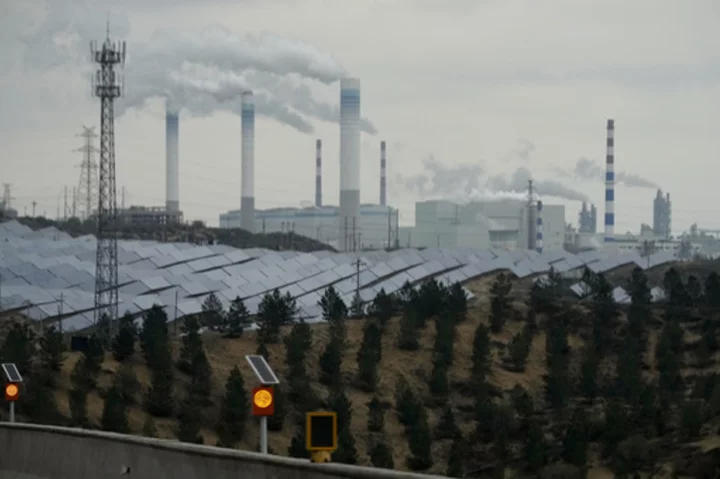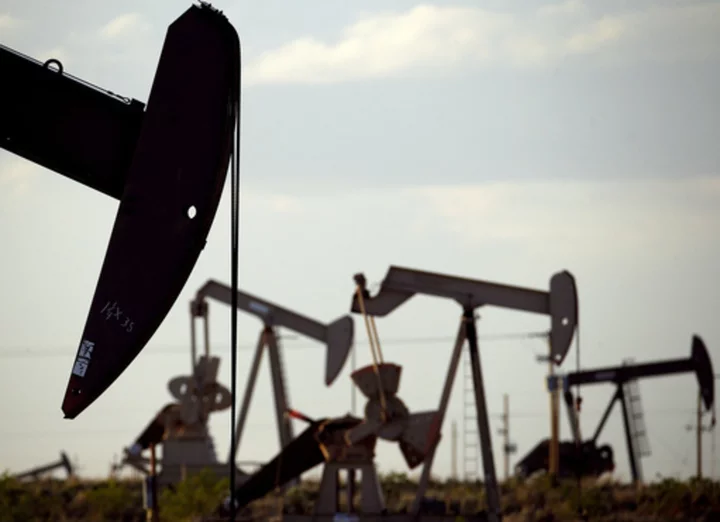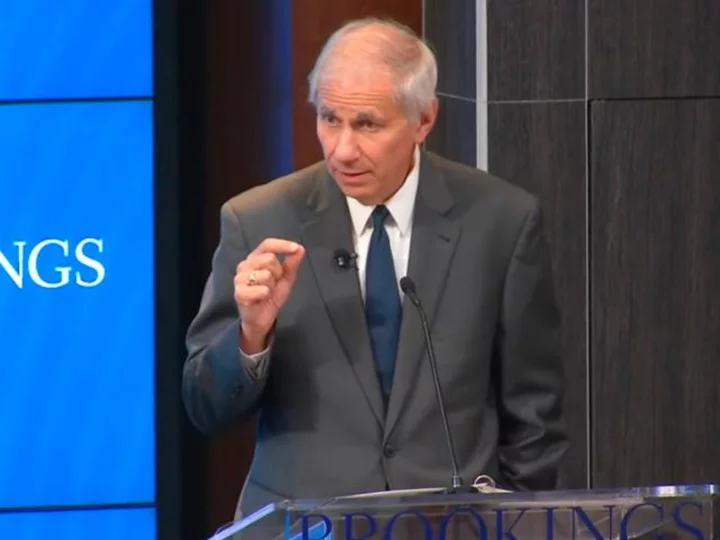JAKARTA, Indonesia (AP) — Energy security concerns — worsened by the war in Ukraine — and policy support from rich countries are likely to help investments in clean energy outpace spending on fossil fuels, the International Energy Agency said in a report issued Thursday.
But investments in coal are on course to rise by about 10% in 2023, nearly six times what the IEA has estimated they should be for the world to end its reliance on fossil fuels and achieve emissions cut goals for countering climate change, it said.
“We are in a significantly better place than we were a few years ago,” Tim Gould, IEA's chief energy economist, said at the report's launch Thursday. “There’s still a very long way to go, but there are finally some encouraging signs for us all to welcome.”
Some $2.8 trillion is set to be invested in energy globally in 2023, of which more than $1.7 trillion is expected to go to clean technologies including modern electricity grids, energy storage, low-emissions fuels and electric vehicles, according to the organization's latest World Energy Investment report.
Slightly more than $1 trillion is going to coal, gas and oil — fossil fuels that are a major source of emissions that are contributing to global warming.
Part of the problem is that demand for energy is outstripping increases in supplies in many parts of the world. Powerful energy industry interests also sway decisions about investments in future capacity, often in favor of fossil fuels.
Global coal demand reached an all-time high in 2022 and about 40 gigawatts of new coal power plants were approved, the highest figure since 2016, with almost all in China, the report says.
Still, the trend is shifting in favor of renewable energy. For every $1 spent on fossil fuels, $1.70 is now spent on clean energy. Five years ago the ratio was 1:1, according to the report.
Clean energy investments have been boosted by a variety of factors in recent years, including periods of strong economic growth and volatile fossil fuel prices that raised concerns about energy security, especially following Russia’s invasion of Ukraine.
Enhanced policy support such as the Inflation Reduction Act in the U.S. and initiatives in Europe, Japan, China and elsewhere have also played a role.
“Solar is the star performer and more than $1 billion per day is expected to go into solar investments in 2023 (USD 380 billion for the year as a whole), edging this spending above that in upstream oil for the first time," the report said, referring to crude oil output.
Electric vehicle sales are expected to leap by a third in 2023 after surging in 2022, it said.
More than 90% of the increase in clean energy investments comes from advanced economies and China, with much less in less wealthy nations. Factors such as high interest rates, weak electricity grid infrastructure and unclear policies are holding back investments in renewable energy in many countries, the report said.
Vibhuti Garg, the South Asia director for the Institute for Energy Economics and Financial Analysis, said that the focus for rich countries is on investing in their own economies and not on making that capital available for poorer nations.
Since 2009, rich nations have promised to spend $100 billion in climate aid for poor nations, with most of it aimed at helping wean them away off fossil fuels like coal and to build clean energy systems. But these financial pledges haven't been fulfilled. Garg said that this means that developing countries will continue to rely on dirty coal.
“How do you expect these developing countries to transition when they don’t have money?” she said.
___
Aniruddha Ghosal reported from New Delhi, India.
___
Associated Press climate and environmental coverage receives support from several private foundations. See more about AP’s climate initiative here. The AP is solely responsible for all content.









